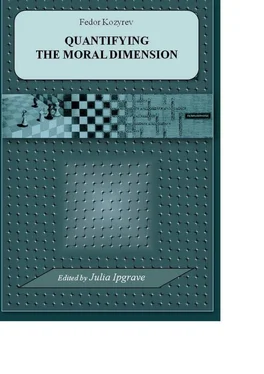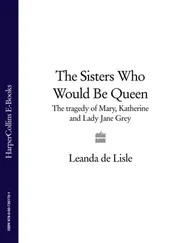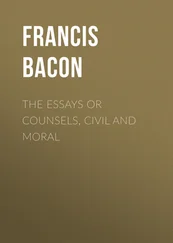Quantifying the Moral Dimension
New steps in the implementation of Kohlberg’s method and theory
Fedor Kozyrev
Dedicated to the memory of John M. Hull
Редактор Julia Ipgrave
© Fedor Kozyrev, 2020
ISBN 978-5-0051-3941-2
Создано в интеллектуальной издательской системе Ridero
This compact work tells of an enterprise bold in both its subject and its design. Its focus on morality places this project in linear descendancy from the interest of the ancients in education for moral living and civic virtue. It also connects it back to the western Enlightenment’s quest for knowledge of moral truths, and to the subsequent internalisation of the subject with 20 thcentury psychology’s exploration of the moral consciousness of the individual and the development of that consciousness from childhood. The subject of moral education has a rich background. Looking forward, it has also acquired a new urgency as the dizzying speed of technological, scientific developments and startling changes in our environmental, public health, demographic, economic and political contexts make for a complex present and uncertain future. We may not know what world we are preparing our young people for, but it is perhaps more important now than ever before to examine principles for reasoning and action that will hold good in the face of unforeseen challenges and hitherto unimaginable possibilities.
The interest of this work is practical. Its aim is to present something of application and benefit to existing educational contexts, and so it is not the place for philosophical first-principles theorisation. Rather it straight away aligns itself with constructivist pedagogies. Morality is treated as a process, as an operation. While acknowledging that it is inevitably a simplification, the author nevertheless adopts for its usefulness, the measurement of progress in a subject’s ability for moral judgment as an indicator of the development of moral consciousness. Where that moral consciousness and judgment is deemed to be of great significance to the individual’s negotiation through the world and the right ordering of that world, then the assessment of young people’s progress towards that consciousness, and of the effectiveness of educational systems in promoting that consciousness, becomes important. This brings us to the boldness of the method presented in this work.
The memorably named ONYX test (for the «Assessment of moral discernment and coherence of judgment’) described here constitutes this work’s real innovation and contribution to the field. There is boldness in its advocacy of quantitative methods for the measurement of the moral qualities of individuals. The author goes so far as to write of the «instinctive repulsion’ some might feel, nevertheless, he argues convincingly for an elaboration and accurate usage of quantitative methods as a way of countering trends of depersonalisation and preventing the manipulation of data by those seeking to control all aspects of human activity. He demonstrates this elaboration and usage in the chapters that follow. We find the ONYX test is far from the blunt instrument that critics of quantitative methods fear. The dilemma scenarios of the test are so devised as to capture subtleties of human motivations and understandings, and new technologies have brought greater sophistication to quantitative methods so that it is now possible to process numbers of a magnitude, in a complexity of relationships and with a speed unimaginable before. The results of the tests, as set out in this work, supply valuable insights into the maturation of moral consciousness and the effect of different educational environments on this. They raise interesting questions for further exploration and reflection, such as that of individual «giftedness’ in the moral dimension. There are also some suggestions of the influence of cultural factors on the moral judgments of these Russian young people potentially opening up a new area of intercultural comparison. Above all, they encourage the wider use of such an instrument in other educational institutions and regional and national settings.
It is to enable the wider dissemination and use of such an instrument that this English version has been produced. There can be no better tribute to the vision, insight and dedication of Fedor Kozyrev, designer, research and author of this project, than the replication of his model in many and diverse settings and the accumulation and cross comparison of valuable data on the crucial question of the moral ordering of our lives and world.
Julia Ipgrave
Introduction to English edition
This volume highlights one aspect of an extended experimental initiative in the field of school education that has been undertaken by a group of scholars in St. Petersburg over the last decade. The main purpose of the work was the development of new approaches to moral and religious education and their methodological equipment. The initiative was welcomed by the state after a new National Curriculum, or Federal State Standards of Education, (as it is called in Russian), came into operation in 2010—2011. Two major changes in school policy were especially significant in this respect. Firstly, the concept of Personal Moral and Spiritual Development and Formation was introduced in 2009 and later became part of Federal Standards. It gave the green light for producing a religious education syllabus and the inclusion of moral and religious topics in school curricula. Secondly, the idea of personal school attainments was reconsidered and formulated in terms of competences instead of knowledge and skills. Three types of attainments were identified: 1) special or subject attainments linked to certain disciplines, 2) meta-subject attainments consisting mostly of universal learning skills, and 3) personal attainments reflecting changes in cognitive, communicative, emotional and behavioural dimensions of students’ psyche. Evaluation of personal attainments became quite a new task for Russian educational system and obviously not an easy one. Scholars who dared approach these new challenges had a good chance for obtaining grants. I was among them.
In 2011 I became a supervisor of a state supported scientific project based at one of St. Petersburg’s comprehensive state schools which received the status of a laboratory. The main target of the project was the development and trialling of an experimental programme of Spiritual and Moral Education, based on the interpretative approach. In fact, six years after the start of the project we had two big educational programmes on RE, approved by several school principals, covering the whole period of secondary and high schooling (from 5 thto 11 thgrades) and a good number of didactical resource s for different extracurricular activities. The ideas of J. Hull, M. Grimmitt, R. Jackson, T. Cooling and other outstanding British scholars were extensively presented in all of these programmes but this is a subject for another book. Here we focus on the diagnostics of personal attainments that was also among the priorities of the project. Although not the primary task, it nevertheless attracted and brought to our team specialists in psychological diagnostics from several academic institutions and methodological centres whose considerable contribution was critical for the successful completion of the project. Alla Doumcheva, the docent of the psychology department at St. Petersburg Academy of Post-Diploma Pedagogical Education played the main role in this cooperation and became my main partner for the whole period of research. I express my gratitude to her.
The main parts of this study were originally published in Russian in 2016 under a deliberately ambiguous title that can be translated into English either as «Dimension of Subjectivity» or as «Measurement of the Subjective». 1 1 Козырев Ф. Н. Измерение субъективности: Конструктивизм в практике педагогического исследования. – СПб: РХГА, 2016
Читать дальше












